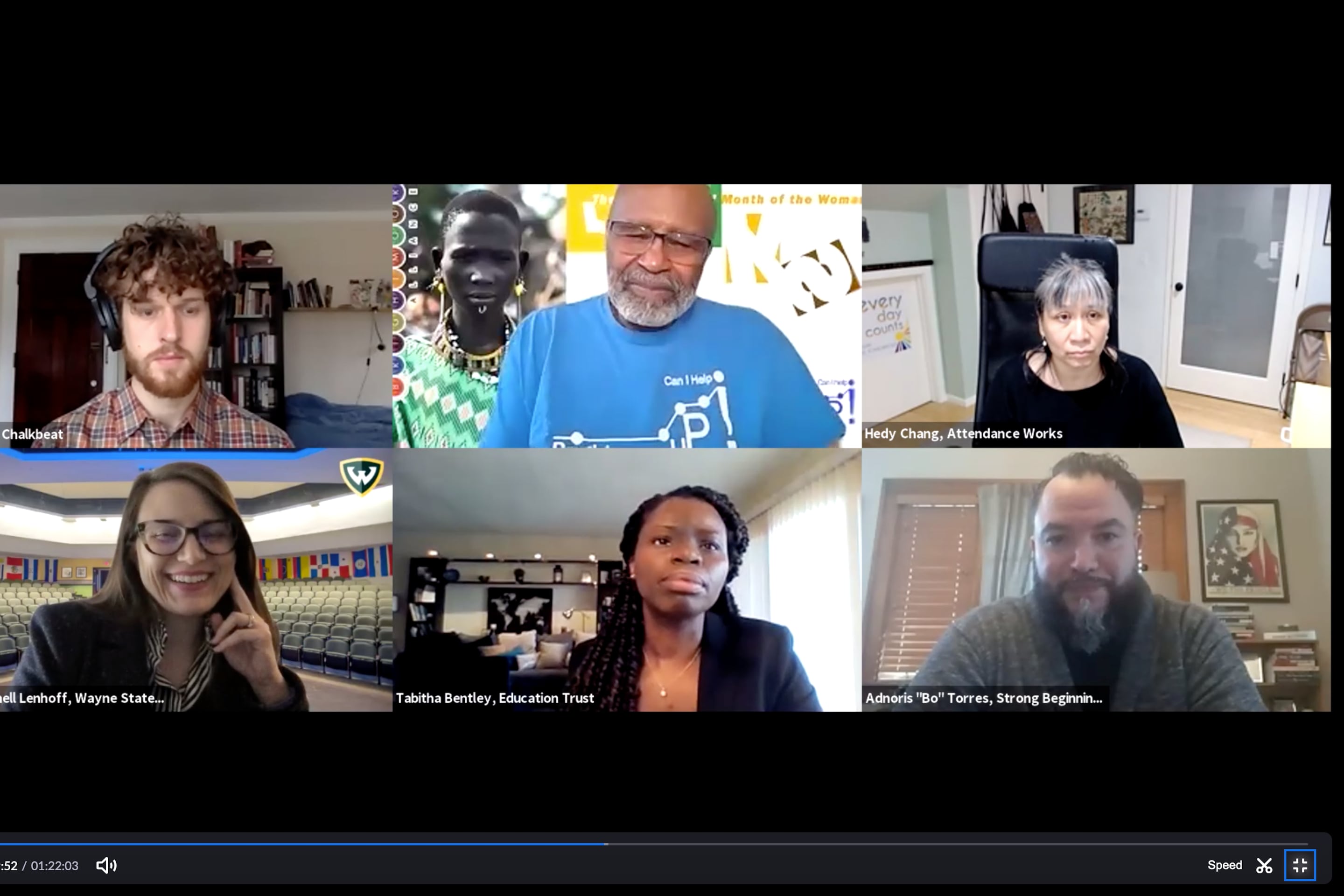Chronic absenteeism isn’t a new issue in Michigan, but it has been greatly exacerbated by the COVID-19 pandemic.
Chalkbeat Detroit convened a conversation last week to foster suggestions for how districts could improve attendance, find disengaged students, and prepare them for the fall semester. Enrollment in Michigan public schools plunged last fall by 61,940 students in preschool through 12th grade. That loss underscores the need to provide students with extra academic and emotional support.
“When you look at 2017-18 chronic absence data, we had about 8 million kids nationwide who were chronically absent,” said Hedy Chang, panelist and leader of the non-profit advocacy organization Attendance Works. That makes Michigan eighth highest among states, she said. “In a pandemic, we know that kids are more likely to face challenges in getting to school and the most likely to miss virtual school.”
The Rev. Larry Simmons, a panelist and a longtime education advocate in Detroit, described some students he knew as “disoriented, isolated, and depressed,” because they are out of the daily rhythm of going to school. But he cautioned school leaders from viewing all students who aren’t showing up for class as “missing.”
“Parents know where their children are,” Simmons said. “Children haven’t disappeared from their homes. What we have to do is use our networks to reach out to families to offer them resources to help them get their kids to school.”
Sarah Winchell Lenhoff, an assistant professor of educational leadership and policy studies in Wayne State University’s College of Education, said during the event that districts have to look at the biggest barriers to getting to school, including transportation, health care, and other factors related to poverty.
Bo Torres agreed that this is especially true for Latino communities and other communities of color, who long have faced barriers in getting to school. “When we start addressing these systemic issues, then we can take a closer look at chronic absence.”
One barrier reinforced by the pandemic is the technological divide preventing families from taking full advantage of virtual learning, said Torres, who created the Padres Fuertes Initiative in Kent County.
Find the full recording of our conversation below. This event is the second in a series of conversations hosted by Chalkbeat Detroit, the Education Trust-Midwest, and the Detroit Free Press.
The panel included:
- Koby Levin, Chalkbeat
- Hedy Chang, Attendance Works
- Sarah Lenhoff, Wayne State University
- Bo Torres, Strong Beginnings – Healthy Start
- Larry Simmons, Every School Day Counts and Brightmoor Alliance





